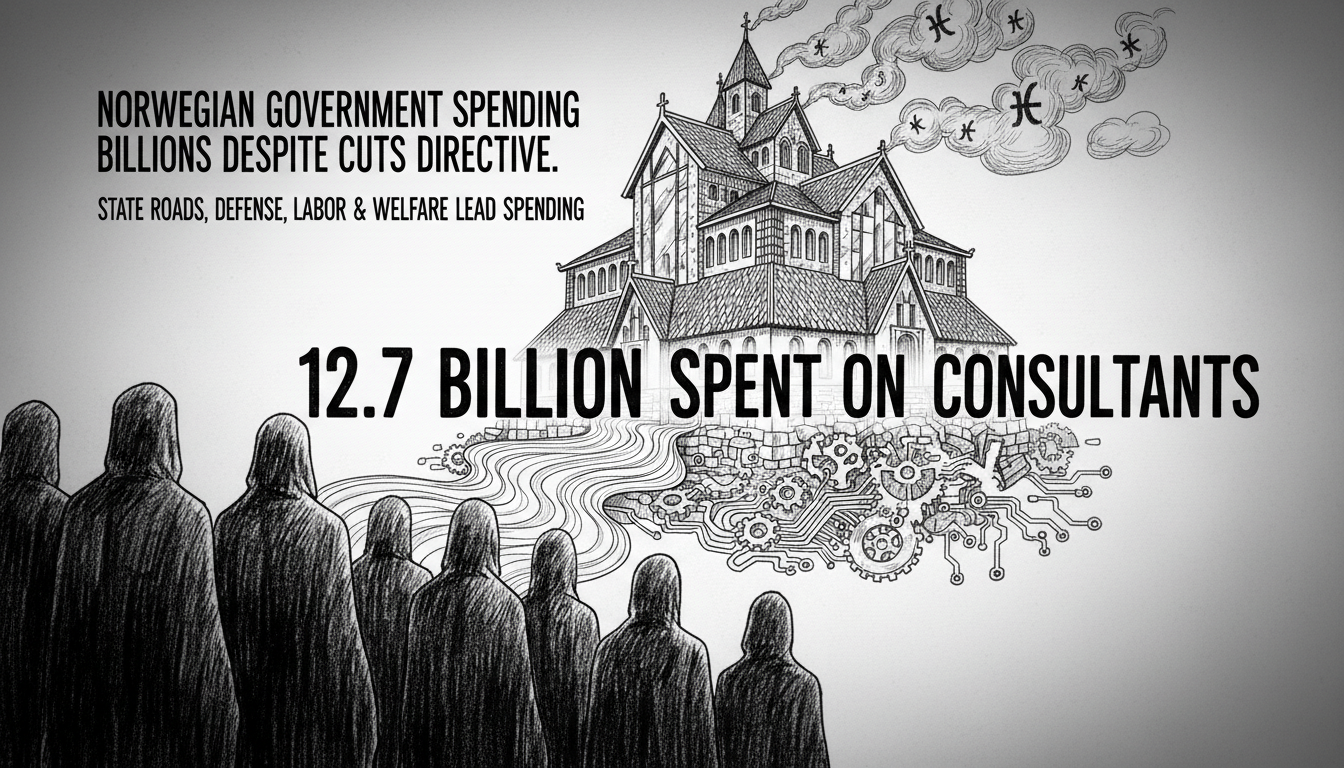Norwegian public agencies spent 12.7 billion kroner on consultants last year. This occurred despite government instructions to reduce external consultant usage. The directive to cut consultant spending began in 2022.
The State Roads Administration spent the most at 2.3 billion kroner. The Defense Ministry followed with 1.2 billion kroner in consultant fees. The Labor and Welfare Administration spent 1 billion kroner on external consultants.
These figures emerged from a parliamentary budget response. The Digitalization and Administration Ministry provided the data. They answered questions from the Red Party about state spending.
Why does this substantial spending continue despite reduction mandates? Government agencies often rely on specialized external expertise. Major infrastructure projects require technical consultants. Defense modernization needs specialized knowledge. Welfare system digitalization demands IT specialists.
Norwegian public sector reform has been ongoing for years. The country faces complex digital transformation challenges. Many agencies lack internal technical capacity. They turn to consultants for specific projects and temporary needs.
This spending pattern reflects broader Nordic technology trends. Public sector digitalization drives consultant demand across Scandinavia. Norway's oil wealth enables substantial public investment. The country maintains high-quality infrastructure through expert consultation.
Oslo's growing tech hub provides many consulting services. Norwegian tech startups often partner with government agencies. They develop digital solutions for public services. This creates innovation opportunities despite spending concerns.
The consultant debate involves efficiency versus expertise. Critics argue agencies should develop internal capabilities. Supporters note specialized projects require temporary experts. The balance between permanent staff and consultants remains challenging.
Norway's digital transformation affects all public services. Roads need smart technology integration. Defense requires cybersecurity expertise. Welfare systems demand user-friendly digital platforms. These complex needs drive consultant spending.
What happens next with government consultant usage? Parliament will likely continue monitoring these expenditures. Agencies may face pressure to justify external spending. The tension between cost control and quality service delivery will persist.

